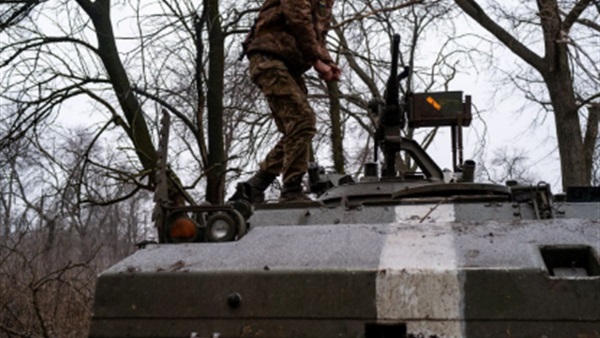Russia Presses Attack in Ukraine’s South While Kyiv Waits for Weapons

Fighting intensified in Ukraine’s strategically important
south, where Moscow claims it is making advances, while Kyiv waits on heavier
weapons from its Western allies.
Russian forces pushed Ukrainian troops back from the front
line in the southern region of Zaporizhzhia in a series of attacks east of the
Dnipro River, said Russian-installed regional official Vladimir Rogov.
The General Staff of Ukraine’s armed forces said Russian
forces had shelled 20 towns and villages along the front line in Zaporizhzhia
over the past day. It didn’t confirm any Russian advances there.
Russia’s recent momentum coincides with the emergence of a
rift between Kyiv’s Western allies over whether to supply Ukraine with
German-made tanks. Germany refrained from pledging Leopard 2 tanks at a meeting
of defense officials last week, putting it at odds with many of its North
Atlantic Treaty Organization allies, including the U.S. Ukraine says it needs
heavier weapons including tanks to reclaim more territory from Russian forces
and thwart an anticipated fresh offensive.
While Russia has telegraphed its intentions to attempt
another push to capture battlefield momentum, Western and Ukrainian military
analysts have recently underscored the increasing importance of the
Zaporizhzhia region for Ukraine.
A Ukrainian offensive in the southern region could sever the
territory occupied by Russia’s invasion forces, splitting the eastern and
southern areas of Ukraine that Russian troops currently hold. It could also cut
off Moscow’s much-prized land bridge between Russia and occupied Crimea.
For Russia, advances in Zaporizhzhia could boost their
logistical capabilities in the south and help Moscow’s forces press deeper into
Ukraine.
Analysts say Kyiv’s goal in inflicting casualties on Russian
forces in eastern Ukraine is also to draw troops away from Russian lines in
other regions, including Zaporizhzhia.
But nearly a year of fighting has also exacted a heavy toll
on Ukrainian ranks. President Volodymyr Zelensky said Sunday that the country’s
military leadership had been tasked with mustering reserves to allow soldiers
engaged in combat to rest. Mr. Zelensky didn’t disclose details of the
mobilization process.
Both Russia and Ukraine have suffered heavy casualties
around the eastern city of Bakhmut. After months of failed attempts to seize
the city, Russian forces broke through Ukrainian defenses in the nearby town of
Soledar earlier this month in a sign that Moscow’s mobilization of 300,000
reservists may be shifting the war of attrition in its favor.
Military analysts say Russia will likely try to use the
newly mobilized troops to make advances, although some believe Russia’s falling
munition stocks could compromise its offensives.
The U.K. Ministry of Defense said Russia’s top general,
Valery Gerasimov, recently appointed to head Moscow’s forces in Ukraine, has
likely taken measures to improve discipline among Russia’s forces, whose morale
has been hit by problems with equipment, logistics and training in the middle
of winter, according to Russian soldiers and military analysts.
“Since he took
command, officers have been attempting to clamp down on non-regulation uniform,
travel in civilian vehicles, the use of mobile phones, and non-standard
haircuts,” the ministry said on Twitter.
Russia’s Foreign Ministry said Monday that it was reducing
the number of Estonian diplomats able to work in Russia in response to what it
called similar moves made by the Baltic nation. The ministry said the
ambassador must leave the country by Feb. 7 in a downgrading of relations.
Latvia’s foreign minister, Edgars Rinkēvičs, said the
country would likewise downgrade relations with Moscow in what he called a move
of solidarity with Estonia that would become effective Feb. 24, the first
anniversary of Russia’s invasion of Ukraine.
Russian Deputy Foreign Minister Sergei Ryabkov said there
was a growing risk of an escalation in the war given Western pledges of new
weapons for Ukraine.
“Escalation is a very dangerous path and its consequences
can be unpredictable,” state news agency RIA reported Mr. Ryabkov as saying.
“Our signals are not being taken into consideration and the enemies of Russia
are continuing to raise the stakes.”
Russia has repeatedly warned against Western military aid
for Ukraine. While President Vladimir Putin has made veiled nuclear threats
against those who try to interfere with Russia’s invasion, U.S. officials have
said repeatedly they see no change in the country’s nuclear stance.









